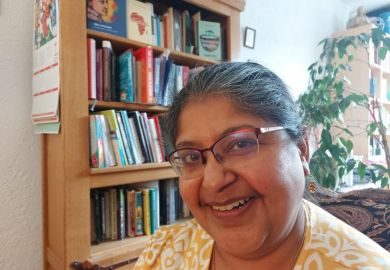Debate continues to rage over definitions of "the Romantic period". Those who argue that the term is simply a historical tag for the period 1785-1830 compete furiously with those who believe there are essential aesthetic characteristics discernable in "Romantic" works of art.
Jerome McGann's seminal work, The Romantic Ideology (1983), which contends that Romantic writers, by appearing to transcend historical concerns, only reveal their historical positioning further, and Marjorie Levinson's similar arguments in studies such as Wordsworth's Great Period Poems (1986), which also maintains that romanticism is a reactionary movement of historical displacement, constitute the latest orthodoxy which now invites interrogation.
Perhaps this is the justification for another general book on the period. Maurice Cranston, the late emeritus professor of political science at the London School of Economics, who died while The Romantic Movement was in press, has the potential as an outsider to offer a fresh perspective. By approaching the period as a philosopher with a particular interest in Rousseau, he aims to establish a connection between the philosophical ideas of the period - pioneered, he argues, by Rousseau - and later artistic productions, thus implicitly proving a unifying aesthetic movement.
With no concerns about the sophisticated contortions of any form of displacement, he asserts that the Romantic movement began in 1761 with the publication of Rousseau's La Nouvelle Heloise.
Besides his desire to offer a philosopher's view of a literary movement, Cranston aims to trace this movement across Europe. He was well qualified to do this, having held the chair of political philosophy at the European University Institute for three years and married into the German aristocracy. Perhaps it was his ease with different languages and cultures which encouraged him to attempt to cover the Romantic Movement in France, England, Germany, Spain and Italy, with occasional sallies into America, Russia and Scandinavia.
These are laudable aims. Romantic criticism in English has tended towards the parochial, concerned only with writers in Britain and discounting the influence of contemporary European writing. It is too often caught up in assenting to, or dissenting from, its own narrow orthodoxies and theoretical schools. But without critical awareness of the terminology he uses (or of many books written in the last decade), Cranston is scarcely credible. In his own profession of political philosophy he has admitted to finding wearisome the theoretical definitions of human rights which other philosophers propose. He chooses instead to use his experience of working for Amnesty International and helping people imprisoned without trial in order to keep his thinking pragmatic and theory-free. That might work well in philosophy but it will never do in literary criticism. The terms "Romantic", "romanticism" and "Age of Reason" which sprinkle Cranston's book are so hedged with competing definitions that to use them uncritically is less provocative than naive.
Cranston's refusal to define his terms leads to a lack of sensitivity to ambiguities, exceptions and the subtler nuances of the literary text. Goethe, according to Cranston, moves back to "classicism" after briefly flirting, in Werther, with "romanticism". But this does not take into account the "romanticised" view of the classics propounded by A. W. Schlegel which influenced Goethe's interpretation of ancient Greek drama. The Gothic genre is not mentioned, probably because it owes its origins to the "graveyard" poetry of the 1740s and so disrupts Cranston's neat distinctions of chronology.
The literature of the American war of independence is also bizarrely excluded from the sacred realm of "romanticism" because it is "too much the creature of the Enlightenment" despite the fact that it inspired Tom Paine's writing and thus much early 19th-century revolutionary thought. Thus in Cranston's eyes, one Age (always capitalised) follows after the last with no overlapping territories or heterogeneity. This must be the reason why for him Blake's Songs of Innocence and Experience, a masterpiece of irony, speaks simply of "the goodness of nature and the corruption of childhood".
Equally disappointing is Cranston's failure to deal adequately with the comparative nature of his study. In this time of post-colonial studies, a Europe-wide account of Romanticism cries out for some form of engagement with the idea of relationships between countries, relationships which might include anxieties of political dominance, of originality or dependence. Madame de Stael's Corinne, for example, figures Italy as Oriental and Other in order to highlight western characteristics. How was this read in Italy? Indeed, apart from a few interesting exceptions such as the reading of Sir Walter Scott in France, there is nothing from Cranston on the reading of foreign texts. At the end of the book, he checks himself for a moment to consider the paradox that national consciousness, which has emerged by then as one of the chief characteristics of his "romanticism", should be influenced by "alien origins", by national feelings in other countries. But such doubts last only a paragraph and the pragmatic case histories continue.
For The Romantic Movement is really a set of stories, accounts of individual lives and descriptions of narrative plots with the analysis at the level of exclamations like "grand" or "wonderful". At times it reads like cliche-ridden tales from one's grandfather - poets "commune with nature", Coleridge escapes his "nagging wife" - to which one must politely listen in silent disagreement. If you want simple enthusiasm, Cranston's the man. If you want anything more, Romanticism in National Context (1988), edited by Roy Porter, is much better.
Jennifer Wallace is a research fellow, Clare College, Cambridge.
The Romantic Movement
Author - Maurice Cranston
ISBN - 0 631 17399 4 and 19471 1
Publisher - Blackwell
Price - £35.00 and £11.99
Pages - 176
Register to continue
Why register?
- Registration is free and only takes a moment
- Once registered, you can read 3 articles a month
- Sign up for our newsletter
Subscribe
Or subscribe for unlimited access to:
- Unlimited access to news, views, insights & reviews
- Digital editions
- Digital access to THE’s university and college rankings analysis
Already registered or a current subscriber? Login



